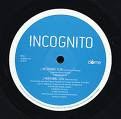 With 5 years of medical school behind me, I find myself here once again. Time to ponder the future, to reflect upon past mistakes and make amends, to look ahead with hope and anticipation.
With 5 years of medical school behind me, I find myself here once again. Time to ponder the future, to reflect upon past mistakes and make amends, to look ahead with hope and anticipation.I've always thought, at the age of 25, that I would know what I wanted in life. But on this day I wonder, "What lies ahead?" I've always wanted to specialize; but in which field? So I embarked on a journey of progressive elimination. It would definitely be a field with direct patient contact; meaning specialties like Radiology and Pathology are out. I hate kids, so no paediatrics for me. Hate crime scenes, so good bye forensics. Not too keen on entering courtrooms and explaining why it wasn't my fault that a mother died/young child will be spastic for life(cerebral palsy)/hysterectomy(removal of uterus) needed to be done...so not O&G either. Can't stand watching someone else doing something while I sit down idly for hours, so Anesthesiology's probably not right for me either.
That leaves Surgery and Internal Medicine. Admittedly my interest in pursuing surgery emerged from watching the heroes of the Operating Room on TV battling to save a patient’s life and ALWAYS prevailing, but there something very exciting about being able to stick your hands into a fellow human beings body and see the problem with your very eyes. It's almost like entering a trance-like state. Unfortunately, in medical school the teaching of surgery it reduced to "Internal Medicine for the mentally challenged'. When in doubt, cut it out.' 'If you can't see it, it isn't a (surgical) problem!’
Then came Internal Medicine. Of all my rotations in medical school I enjoyed this one the most. Yes, the reading requirements were astronomical, but I really liked knowing what I was doing. Internal Medicine reignited my interest s for the basic sciences of Physiology and Pathology, and I could finally see the relevance of my pre-clinical years to my future career. There were the mentally-stimulating case discussions, the consideration of a myriad of differential diagnosis and the selection of the most appropriate, the referrals from other specialties to discuss puzzling cases and the joy of figuring them out(and bragging rights that come with it!) :). On the flipside, there were frustrations too...not being able to offer treatment because the drug was too expensive/was not available, patients missing from follow-up, difficult patients with whom compliance to a treatment plan was near impossible to achieve(Not a problem in surgery: "You sleep, me cut, we good")
What does the future hold? Will I become a decisive scalpel-wielding surgeon or a cerebral, stethoscope-wielding physician? Comments please! Would love to hear from practising doctors out there their thoughts on their respective specialties.

A physician's most important tool is not a stethoscope, but his/her brain (knife-wielding types out there, don't be offended :) )! Go through your rotations and you'll find your calling. Good luck
ReplyDeleteit's still a lose-lose situation
ReplyDelete